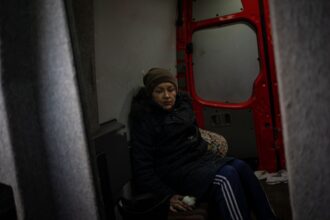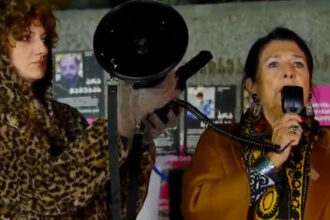The non-governmental organization, “Transparency International – Georgia”, publishes a study on the current state of affairs in four key areas for the democratic environment in 2020-2024 (judicial system, anti-corruption environment and media environment).
According to the organization’s findings, the situation of democracy in the country has been alarmingly deteriorated in the last four years, prior to the decisive parliamentary election.
According to them the process of state takeover continued and deepened. The impunity for high level corruption reached a kleptocratic level. Clan rule in the judiciary system was further consolidated. Parliamentary supervision remained a mere formality. A hostile environment was created for critical media and journalistic activities became dangerous.
The main findings of “Transparency International-Georgia” report are as follow:
Anti-corruption environment
The process of state capture has been confirmed, deepened and continued.
The problem of high-level kleptocratic corruption has been exacerbated in the last four years.
The anti-corruption office, although initially deemed positive, failed to effectively combat corruption as it was also hijacked by other institutions.
The Georgian government has not met the anticorruption requirements set by the European Commission or the Venice Commission, apart from creating the Anti-Corruption Bureau.
Judicial system
The Georgian authorities refused the demands of the European Union in relation to the court.
The so-called existing system in the judiciary continued. Consolidation of the “Klan” with further deterioration in legislation and selection and advancement of new cadres near the clan within the judicial system.
The US State Department’s imposition of sanctions on the judges at the top of the “Klan”, has shown how deep the corruption is of a group influential judges who control the whole judicial system.
The clan court system obeyed the government’s orders in prosecuting peaceful protesters;
The clan court system, under the control of the government, was also actively involved with prosecuting politicians and critical journalists.
Parliamentary oversight
In many cases, parliamentary control did not cover important issues for the country. This included corruption. The majority of parliamentarians used control mechanisms primarily to achieve narrow party goals.
During the Covid-19 pandemic crisis, the Parliament refused to exercise its oversight role over the executive.
The oversight of the security sector by Parliament was formal. The European Commission had requested that the Parliament strengthen its control over the security sector.
The opposition’s role in the supervision process was severely weakened. The majority created artificial barriers to prevent the opposition from being able to supervise the government.
media environment
After the deterioration in the media environment over the last four years, alarming cases such as mass attacks and violent acts against journalists, which led to the death of “Telecompaniya Pereme’s” cameraman, were revealed. Also, bringing legal actions against the owners and founders and arresting them.
It is alarming to see the use of the Justice System, the Communications Commission, and other government structures against critical media;
The danger of a number of laws and standards adopted by the ruling majority that further restrict and complicate journalistic activities is particularly high.
Read More @ www.interpressnews.ge




